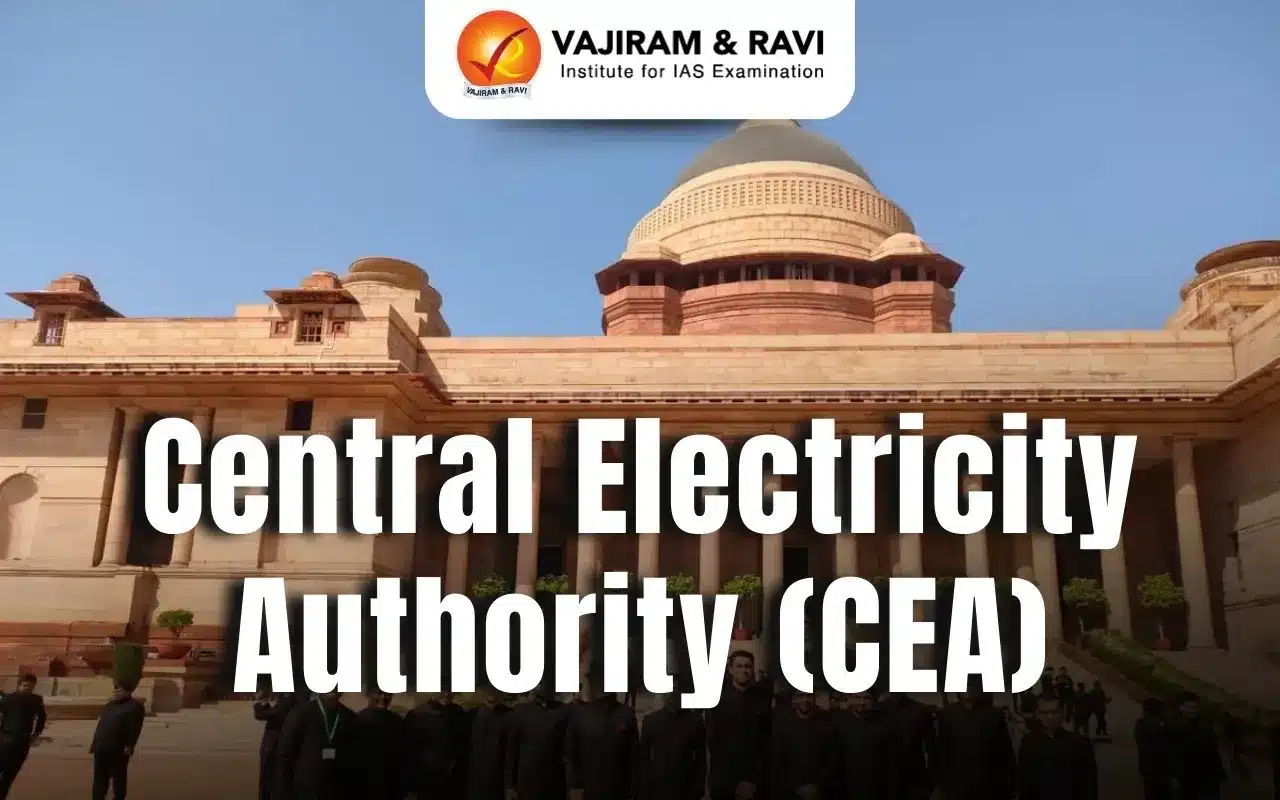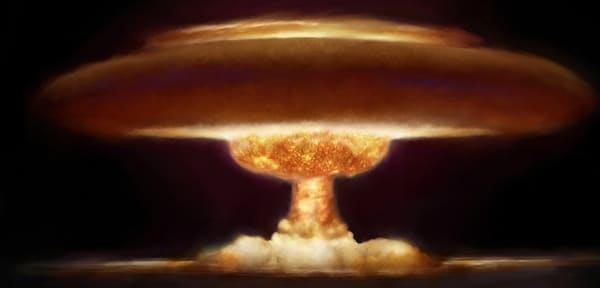Central Electricity Authority Latest News
The Central Electricity Authority (CEA) recently issued guidelines to promote efficient allocation, sharing, and utilisation of optical fibres that will contribute to better resource management across the power sector.
About Central Electricity Authority
- It is a statutory body established under section 3(1) of the Electricity Supply Act 1948, which was repealed by section 70(1) of the Electricity Act 2003.
- It is an “Attached Office” of the Ministry of Power.
Central Electricity Authority Functions
- Advise the Central Government on matters relating to the national electricity policy, formulate short-term and perspective plans for the development of the electricity system, and coordinate the activities of the planning agencies for the optimal utilisation of resources to subserve the interests of the national economy and to provide reliable and affordable electricity for all consumers;
- Specify the technical standards for the construction of electrical plants, electric lines, and connectivity to the grid;
- Specify the safety requirements for the construction, operation and maintenance of electrical plants and electric lines;
- Specify the grid standards for operation and maintenance of transmission lines;
- Specify the conditions for the installation of meters for transmission and supply of electricity;
- Promote and assist in the timely completion of schemes and projects for improving and augmenting the electricity system;
- Promote measures for advancing the skill of persons engaged in the electricity industry;
- Advise the Central Government on any matter on which its advice is sought or make recommendations to that Government on any matter if, in the opinion of the Authority, the recommendation would help in improving the generation, transmission, trading, distribution, and utilisation of electricity;
- Collect and record the data concerning the generation, transmission, trading, distribution and utilisation of electricity and carry out studies relating to cost, efficiency, competitiveness, and such like matters;
- Make public from time to time the information secured under this Act and provide for the publication of reports and investigations;
- Promote research in matters affecting the generation, transmission, distribution and trading of electricity;
- Carry out, or cause to be carried out, any investigation for the purposes of generating, transmitting, or distributing electricity;
- Advise any State Government, licensees, or the generating companies on such matters, which shall enable them to operate and maintain the electricity system under their ownership or control in an improved manner and, where necessary, in coordination with any other Government, licensee, or the generating company owning or having control of another electricity system;
- Advise the appropriate Government and the appropriate Commission on all technical matters relating to the generation, transmission, and distribution of electricity; and
- Discharge such other functions as may be provided under this Act;
Central Electricity Authority Organisation Structure
- It is headed by a Chairman, who is also ex-officio Secretary to the Government of India, and comprises six full-time Members.
- They are designated as Member (Thermal), Member (Hydro), Member (Economic and Commercial), Member (Power Systems), Member (Planning) and Member (Grid Operation and Distribution).
Central Electricity Authority FAQs
Q1. Is the Central Electricity Authority a statutory body?
Ans. Yes, the Central Electricity Authority (CEA) is a statutory body.
Q2. What is the Central Electricity Regulatory Commission (CERC)?
Ans. It is a statutory body established by the Government of India under the provisions of the Electricity Regulatory Commissions Act, 1998.
Q3. What is Electricity?
Ans. Electricity is a form of energy resulting from the movement of charged particles, typically electrons, through a conductor. I
Source: CNBC
Last updated on June, 2025
→ UPSC Notification 2025 was released on 22nd January 2025.
→ UPSC Prelims Result 2025 is out now for the CSE held on 25 May 2025.
→ UPSC Prelims Question Paper 2025 and Unofficial Prelims Answer Key 2025 are available now.
→ UPSC Calendar 2026 is released on 15th May, 2025.
→ The UPSC Vacancy 2025 were released 1129, out of which 979 were for UPSC CSE and remaining 150 are for UPSC IFoS.
→ UPSC Mains 2025 will be conducted on 22nd August 2025.
→ UPSC Prelims 2026 will be conducted on 24th May, 2026 & UPSC Mains 2026 will be conducted on 21st August 2026.
→ The UPSC Selection Process is of 3 stages-Prelims, Mains and Interview.
→ UPSC Result 2024 is released with latest UPSC Marksheet 2024. Check Now!
→ UPSC Toppers List 2024 is released now. Shakti Dubey is UPSC AIR 1 2024 Topper.
→ Also check Best IAS Coaching in Delhi
























